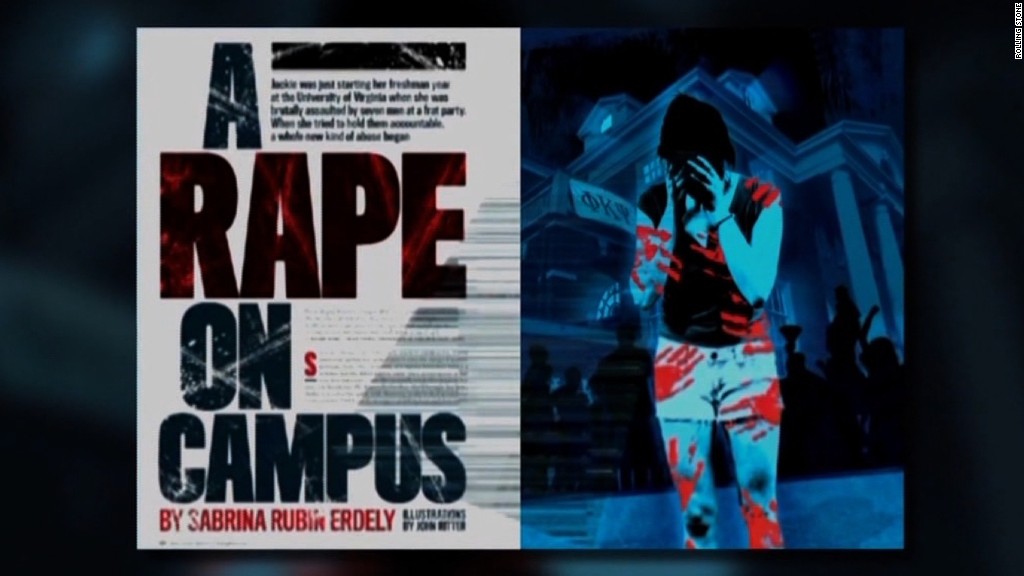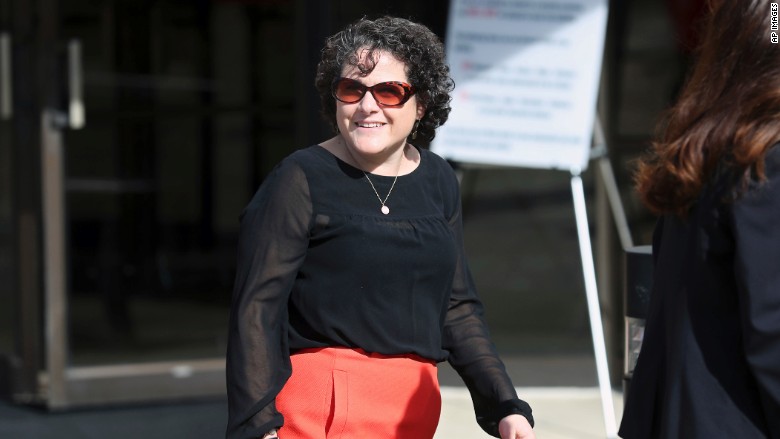
Rolling Stone says its discredited story about a gang rape at a University of Virginia fraternity house is a "badge of shame."
David Paxton, a lawyer for the magazine, made the admission Monday as a jury began considering damages after finding in favor of a school administrator who sued for defamation.
"We accept your verdict. We accept the decision you have made," Paxton told jurors. He added later: "This has been a badge of shame for Rolling Stone."
On Friday, the jury ruled for administrator Nicole Eramo, who argued that the story portrayed her as callous and insensitive to the plight of an alleged rape victim. The magazine's publisher and the reporter, Sabrina Rubin Erdely, were also found liable.
Eramo is seeking $7.5 million.
In the story, "A Rape on Campus," a woman identified only as Jackie claimed that she had been beaten and raped by seven men at the Phi Kappa Psi house. Eramo has said that she was "the chief villain of the story," in part because she was described as discouraging Jackie from going to the police.
The story was published in November 2014 and fell apart over the following months. Charlottesville police found no evidence that the rape happened. And Erdely had never spoken to the men identified as Jackie's attackers.
Through tears, Eramo told the jury Monday about the first time she read the Rolling Stone story: "Those days after the article came out, I felt like a dead man walking."
She suggested that she once contemplated suicide because of the article. The outrage directed toward Eramo also came as she was preparing for cancer surgery, she said.
Eramo said she was forced to leave her job as an associate dean of students in favor of an administrative role with less student contact, and now worries about long-term job prospects.
On Monday, Tom Clare, Eramo's lawyer, told the jury his client was a "strong" person. "But even the strongest people have a breaking point," he added.
Her team said the defamatory statements harmed Eramo's reputation, emotional well-being and professional standing. Her lawyers emphasized the article's scope, saying it reached roughly 14.7 million readers between its initial publication in November and full retraction in April 2015.
Lawyers for Rolling Stone said this estimate is generous because it is based off circulation numbers intended for advertisers.
Eramo dropped an additional $350,000 claim for punitive damages. There is no cap on what she can seek in compensatory damages. The defendants could appeal any award.

Erdely, the reporter, was found liable for defamation for parts of the original story and interviews she gave about the piece afterward.
Major 'failures' found in Rolling Stone's 'A Rape on Campus'
The magazine and publisher, Wenner Media, were found liable for republishing the story several weeks later with an editor's note. The note acknowledged doubts about Jackie's account but did not change or remove any part of the original story.
A judge had ruled that Eramo was a public figure, so the jury had to determine that each defendant acted with "actual malice" -- making statements they knew were false, or showing reckless disregard -- to hold them liable for defamation.
In a statement after the verdict, Rolling Stone acknowledged "journalistic mistakes" in an attempt to "present this complicated issue from the perspective of a survivor."


